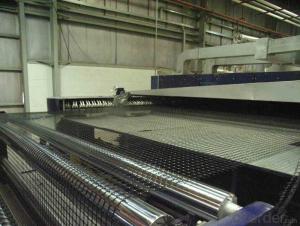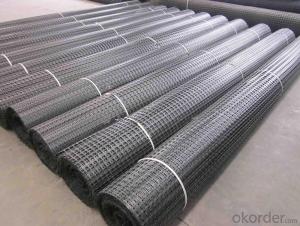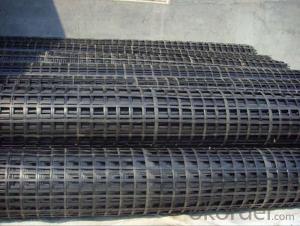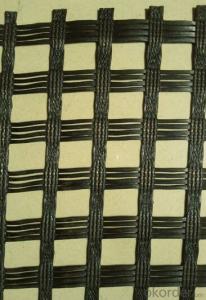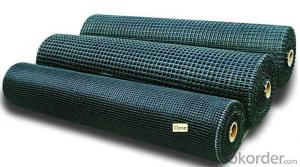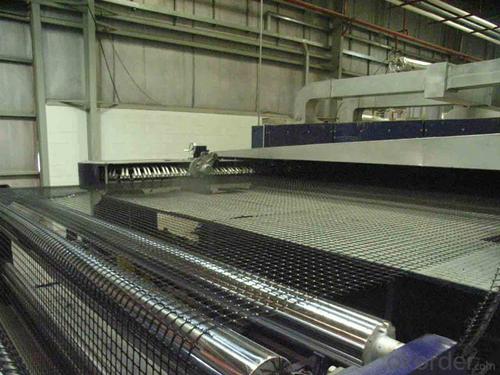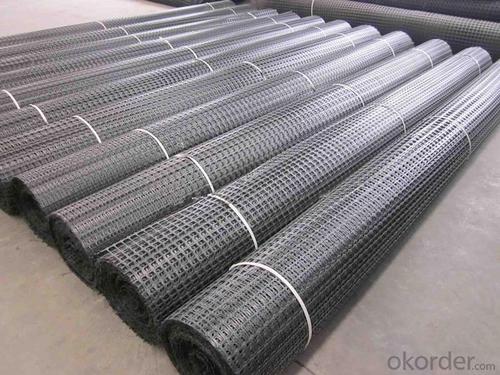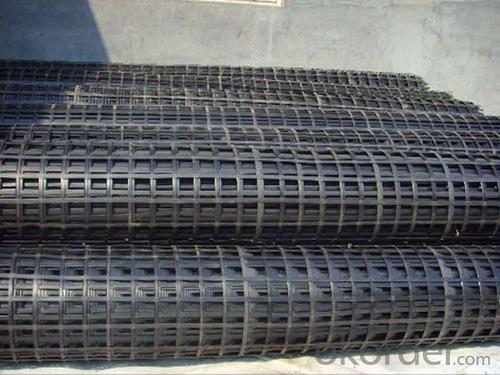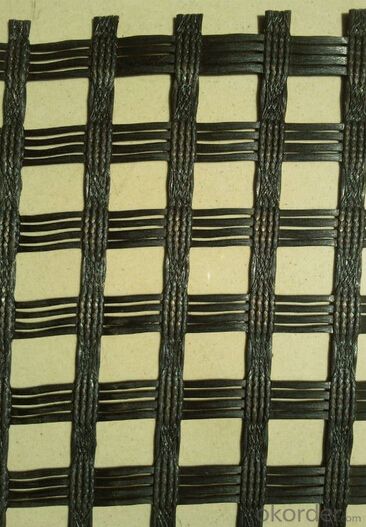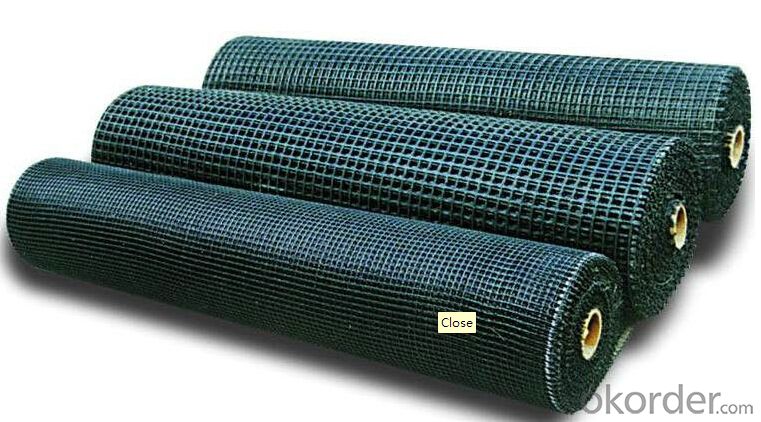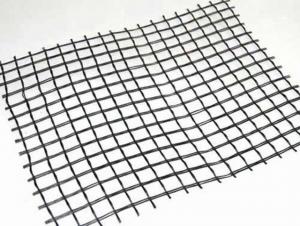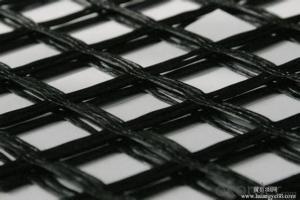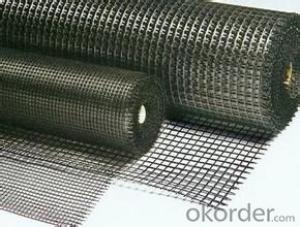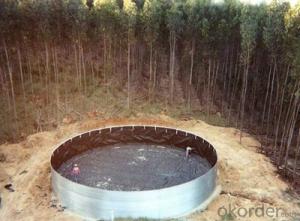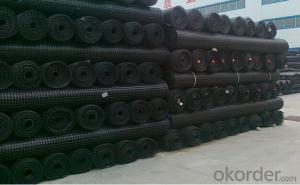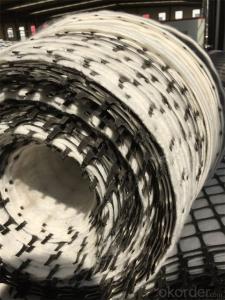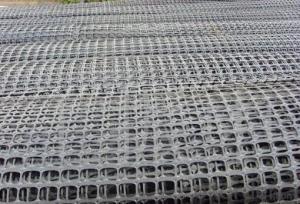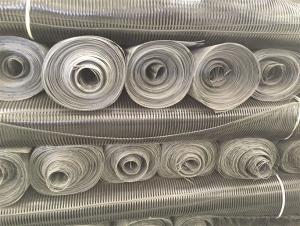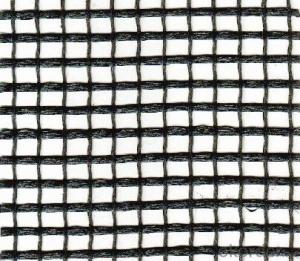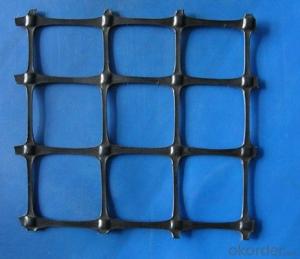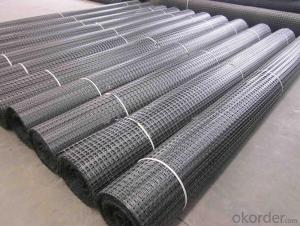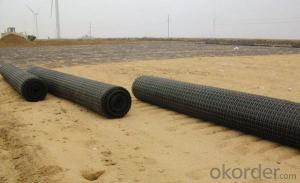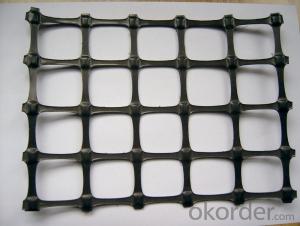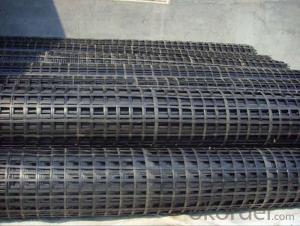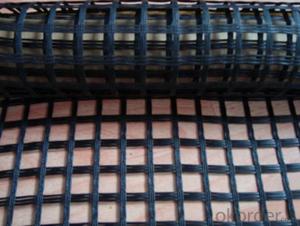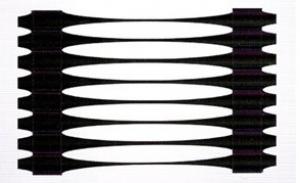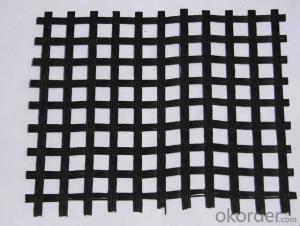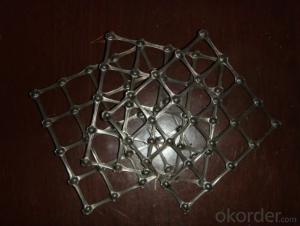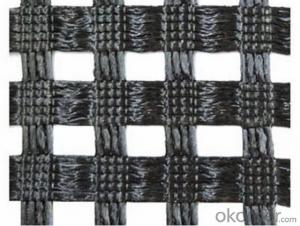Self Adhesive Fiberglass Geogrid Geocells Material
- Loading Port:
- Qingdao
- Payment Terms:
- TT OR LC
- Min Order Qty:
- 50000 m²
- Supply Capability:
- 2000000 m²/month
OKorder Service Pledge
OKorder Financial Service
You Might Also Like
Fiberglass Geogrid Manufacturer with Self Adhesive
Description Of Fiberglass Geogrid Manufacturer with Self Adhesive:
Fiberglass geogrid is a kind of new favorable earthwork base material to strengthen the road surface and roadbed.This product is made by weaving and covering fiberglass filament. It is featured by high vertical and horizontal tensile strength, low unit extension, high flexibility, and favorable high and low temperature resistance.The products after surface covering own the favorable property of alkali resistance and aging resistance. It is used widely to increase the asphalt road surface, concrete road and roadbed (both soft and hard road surfaces). Compared with the traditional road surface, it reduces the cost, prolong the service life, and avoid the reflection road crackle. This product is also used to strengthen the soft land, such as railway, airport, irrigation work, and dyke, etc, and the roadbed.
Main Features of Fiberglass Geogrid Manufacturer with Self Adhesive:
1.High tensile strength, low elongation.
2.No long-term creep: the product can keep for a long time performance.
3.Thermal stability: fiber glass melting temperature above 1000 ℃.
4.The compatibility with asphalt.
5.Physical and chemical stability.
Specifications of Fiberglass Geogrid Manufacturer with Self Adhesive:
Tensile Strength (KN) | Warp | >30 | >50 | >60 | >80 | >100 | >120 | >150 | >200 |
Weft | >30 | >50 | >60 | >80 | >100 | >120 | >150 | >120 | |
Elongation(%) | <4< p=""> | <4< p=""> | <4< p=""> | <4< p=""> | <4< p=""> | <4< p=""> | <4< p=""> | <4< p=""> | |
Mesh Size(mm) | 25.4*25.4 | 25.4*25.4 | 25.4*25.4 | 25.4*25.4 | 25.4*25.4 | 25.4*25.4 | 25.4*25.4 | 25.4*25.4 | |
Elastic Modulus | 76 | 76 | 76 | 76 | 76 | 76 | 76 | 76 | |
Width(m) | 1~6 | 1~6 | 1~6 | 1~6 | 1~6 | 1~6 | 1~6 | 1~6 | |
Length(m) | 50~300 | 50~300 | 50~300 | 50~300 | 50~300 | 50~300 | 50~300 | 50~300 | |
Temperature Resistant(℃) | -100~280 | -100~280 | -100~280 | -100~280 | -100~280 | -100~280 | -100~280 | -100~280 | |
Resin Content (%) | 18~20 | 18~20 | 18~20 | 18~20 | 18~20 | 18~20 | 18~20 | 18~20 | |
Glue Type | Bitumen PVC SBR soakage | Bitumen PVC SBR soakage | Bitumen PVC SBR soakage | Bitumen PVC SBR soakage | Bitumen PVC SBR soakage | Bitumen PVC SBR soakage | Bitumen PVC SBR soakage | Bitumen PVC SBR soakage | |
Applications of Fiberglass Geogrid Manufacturer with Self Adhesive:
Strengthen bitumen concrete roadway and reduce and prevent various kinds of reflection gaps on roadway.
1. Maintenance of old asphalt road reinforcement of asphalt pavement.
2. Converting old cement concrete road into composite road.
3. Restraining reflection cracking caused by block shrinkage.
4. Preventing and controlling the cracking caused by new and old combination and uneven settlement.
5. Road extension.
6. Reinforcement of soft soil foundation and overall strength of roadbed.
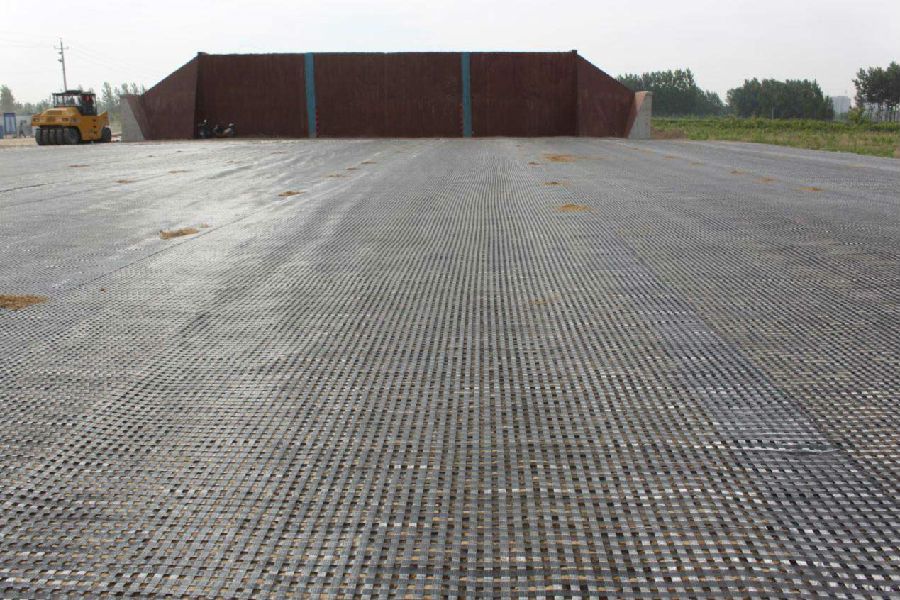
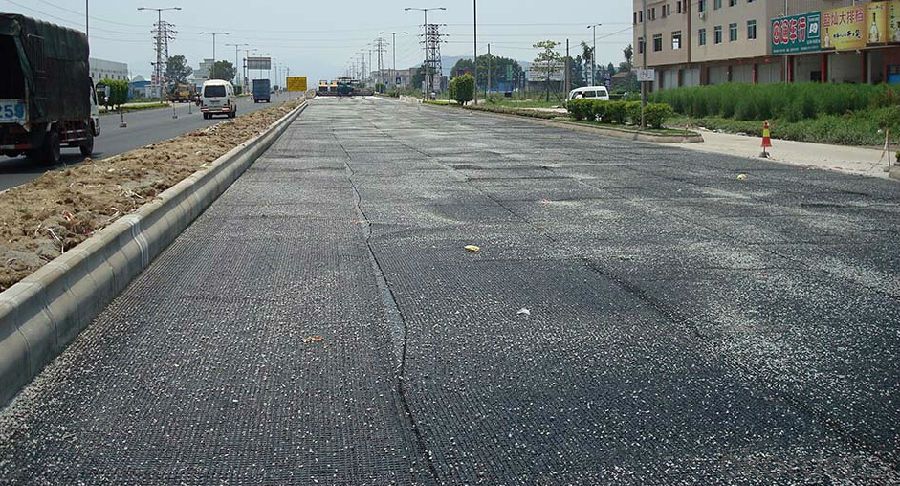
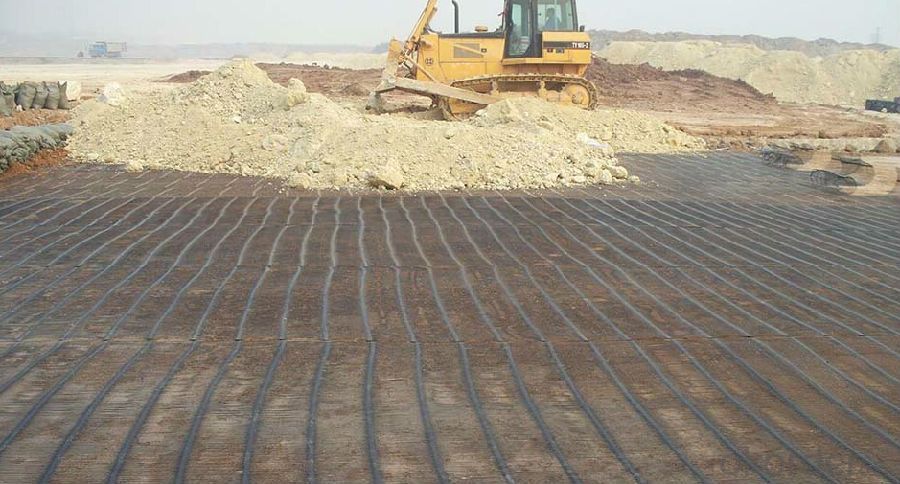
IMages of Fiberglass Geogrid Manufacturer with Self Adhesive:
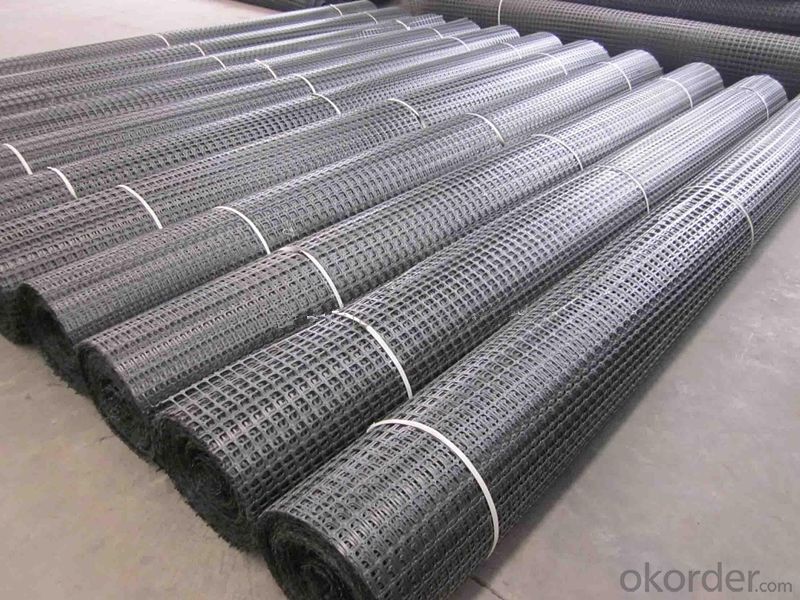
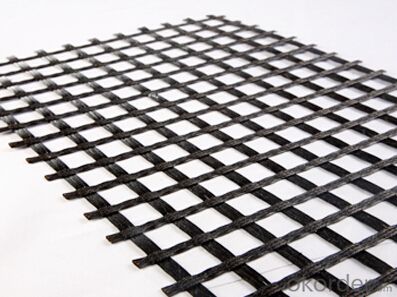
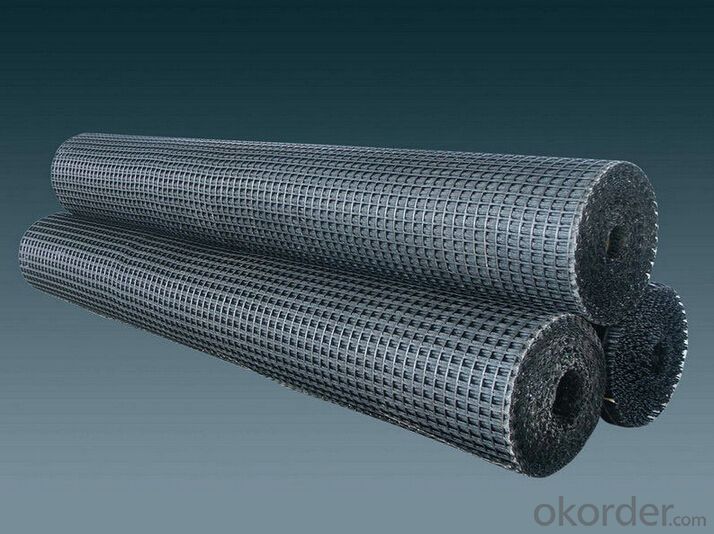
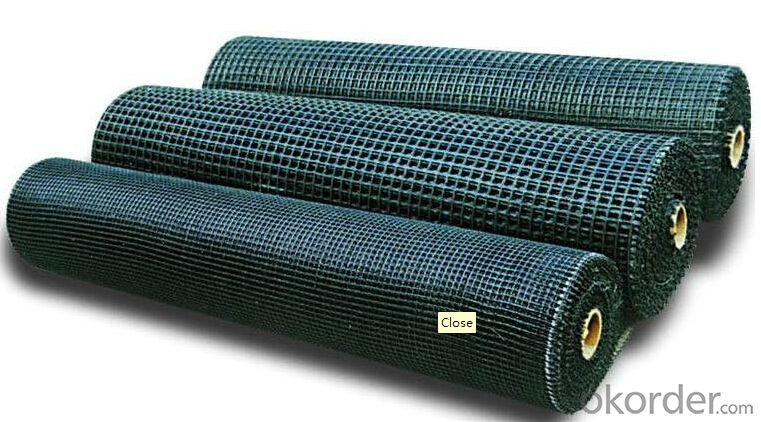
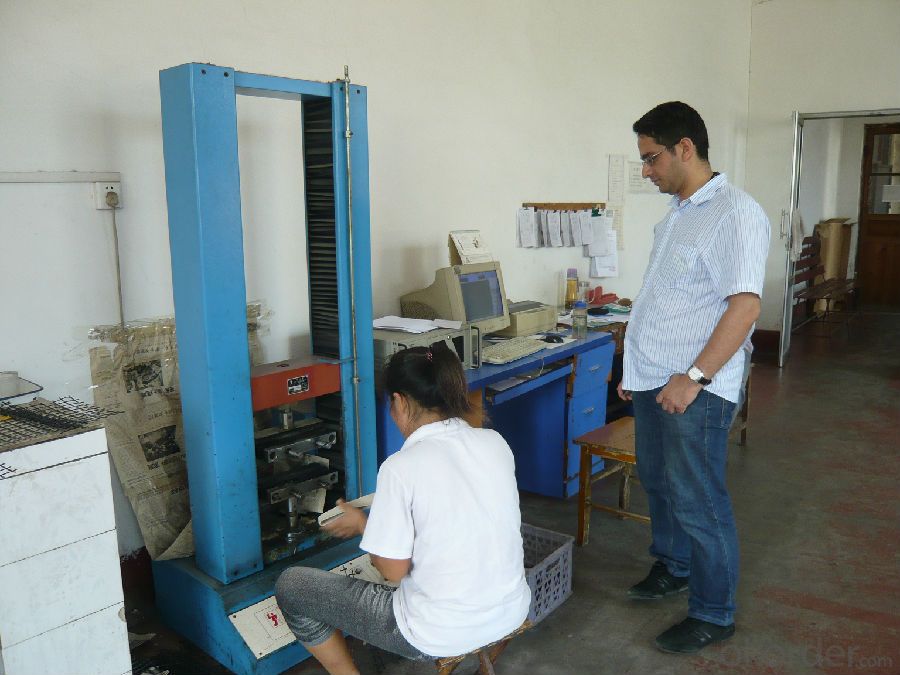
FAQ of Fiberglass Geogrid Manufacturer with Self Adhesive:
1. What are we supplying?
We are specialized in producing Geosynthetic materials, like Geogrid Series, HDPE Geocell, Geonet, Geotextile, Geomat, Tri Denmensional Composite Grainage Geonet, and Geomembrane Series.
.
2. How Many years experience do we have?
We have been exported to more than 20 countries in the past 15 years.
3. How long do we usually reply your request?
We always reply our customer within 24 hours.
- Q: Can geogrids be used in reinforcement of slopes and embankments?
- Yes, geogrids can be used in the reinforcement of slopes and embankments. Geogrids are high-strength materials that are typically made of polymers or metals and are used to improve the stability and strength of soil structures. They are commonly used in geotechnical engineering to reinforce slopes and embankments by providing additional tensile strength and reducing soil movement. Geogrids are effective at preventing erosion, reducing soil settlement, and increasing the load-bearing capacity of slopes and embankments.
- Q: What are the factors that affect the performance of geogrids under cyclic loading?
- The factors that affect the performance of geogrids under cyclic loading include the type and quality of the geogrid material, the design and installation of the geogrid, the magnitude and frequency of the cyclic loading, the soil properties and conditions, and the duration of the cyclic loading.
- Q: How much is the tensile strength of geogrid???????
- Whole plastic stretch type: two-way products: 15KN--50KN one-way products: 50KN---300KN
- Q: Can geogrids be used in temporary construction platforms for heavy equipment?
- Yes, geogrids can be used in temporary construction platforms for heavy equipment. Geogrids are strong and durable, providing stability and reinforcement to the ground. They can distribute the weight of heavy equipment, prevent soil erosion, and improve load-bearing capacity, making them suitable for temporary construction platforms.
- Q: Can geogrids be used in reinforcement of underground storage facilities for hazardous materials?
- Yes, geogrids can be used in the reinforcement of underground storage facilities for hazardous materials. Geogrids are commonly used in soil reinforcement applications to increase the stability and load-bearing capacity of the ground. In the case of underground storage facilities for hazardous materials, geogrids can provide reinforcement to the surrounding soil, preventing settlement and potential damage to the storage structure.
- Q: Can geogrids be used in bridge abutment construction?
- Yes, geogrids can be used in bridge abutment construction. Geogrids are commonly used to reinforce soil and provide stability in various civil engineering applications, including bridge abutments. They help distribute loads and improve the overall performance and longevity of the structure.
- Q: How do geogrids improve the stability of mechanically stabilized earth walls?
- Geogrids improve the stability of mechanically stabilized earth walls by providing reinforcement and increasing the tensile strength of the soil. They act as a stabilizing element, distributing the forces and preventing the soil from shifting or sliding. Geogrids also improve the overall bearing capacity of the wall, allowing for the construction of taller and more stable structures.
- Q: What are the limitations of using geogrids?
- Some limitations of using geogrids include their high initial cost, potential for damage during installation, limited effectiveness in certain soil conditions, and the need for proper maintenance and monitoring to ensure long-term performance. Additionally, geogrids may not be suitable for all applications and may require technical expertise for proper design and installation.
- Q: Geogrid test items: what is the point of the joint point of penetration
- It is not feasible for you to put the test item of waterproof material on the geogrid.
- Q: Can geogrids be used in retaining wall reinforcement systems?
- Yes, geogrids can be used in retaining wall reinforcement systems. Geogrids are commonly used to improve the stability and strength of retaining walls by providing additional support and preventing soil erosion. They are typically placed within the soil layers of the retaining wall to enhance its structural integrity and prevent the movement of soil behind the wall.
Send your message to us
Self Adhesive Fiberglass Geogrid Geocells Material
- Loading Port:
- Qingdao
- Payment Terms:
- TT OR LC
- Min Order Qty:
- 50000 m²
- Supply Capability:
- 2000000 m²/month
OKorder Service Pledge
OKorder Financial Service
Similar products
Hot products
Hot Searches
Related keywords
